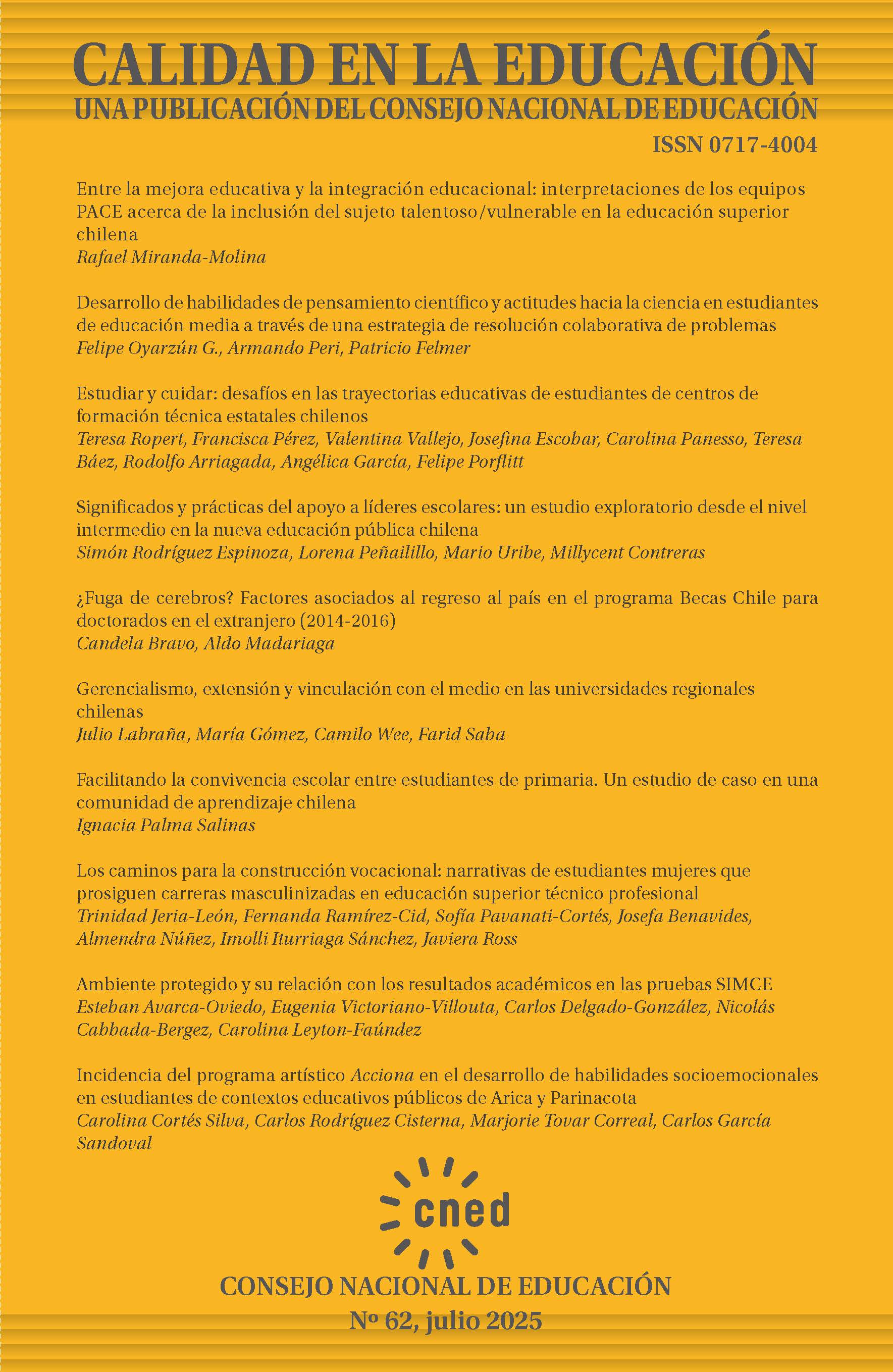Studying and Caregiving: Challenges in the Educational Trajectories of Students Attending Chilean State Technical Training Centers
DOI:
https://doi.org/10.31619/caledu.n62.1588Keywords:
Caregiving, Educational Trajectory, Equity, Gender, Technical EducationAbstract
The creation of State Technical Training Centers (CFTE) in Chile is aimed at improving quality, inclusion, and equity in technical higher education, responding to contexts marked by high levels of socioeconomic and gender diversity. However, the management of caregiving responsibilities remains a structural challenge that affects educational trajectories, especially for women and those juggling multiple work and family responsibilities. This situation is particularly critical in CFTEs, where the
student body is predominantly composed of women, workers, and caregivers. This mixed-methods study examined the impact of caregiving management on CFTE students through interviews with key informants, focus groups, document analysis, and surveys of 340 students. The qualitative findings indicate that, although some support measures exist, they depend on individual faculty efforts and lack formal institutional backing. The gender perspective has primarily focused on regulatory compliance, without comprehensively addressing the need to reconcile study, work, and caregiving. Quantitative data show that most students combine studies with work and caregiving, a situation that is even more challenging for single-parent families. Additionally, territorial inequality is evident in the implementation of equity policies. It is concluded that there is an urgent need to institutionalize comprehensive public policies that recognize caregiving as a core element of technical education.
Downloads
Published
Issue
Section
License

This work is licensed under a Creative Commons Attribution 4.0 International License.
Authors retain their Copyright and only transfer a part of these to the journal, accepting the following conditions:
Authors keep their rights as authors and guarantee the right to the journal for the first publication of their work, which is simultaneously subject to the Creative Commons Attribution license allowing third parties to share the study accrediting the author and first publication in this journal.
Authors may adopt other non-exclusive license agreements for distribution of the version of the published work (e.g. inclusion in an institutional thematic file or publication in a monographic volume) accrediting initial publication in this journal.
Authors are allowed and recommended to share their work over the Internet (e.g. in institutional telematic files or their website) before and during the submission process, which may lead to interesting exchanges and increased citation of the published work. (See The effect of open access).

